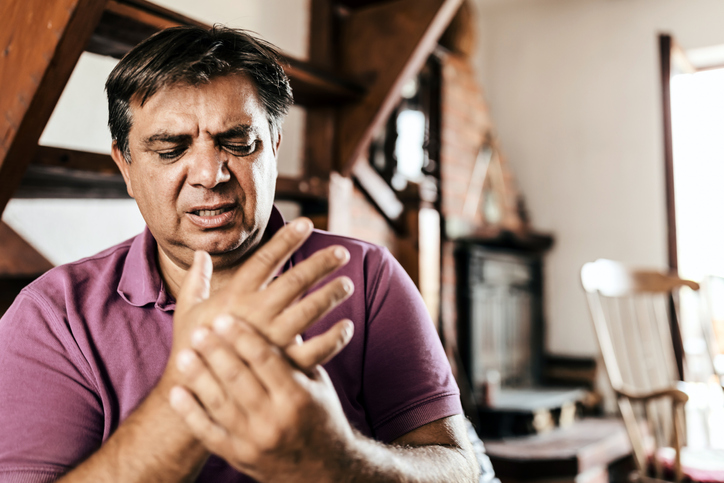Pain
At-Home Treatments for Mixed Connective Tissue Disease (MCTD)

What is mixed connective tissue disease (MCTD)?
Mixed connective tissue disease (MCTD) is a rare autoimmune condition; it is often referred to as an overlap disease because the symptoms of MCTD overlap with symptoms of other connective tissue conditions, including polymyositis, scleroderma and systemic lupus erythematosus (SLE). In some cases, MCTD also mimics symptoms of rheumatoid arthritis.
Autoimmune diseases develop when the immune system mistakenly attacks healthy cells; mixed connective tissue disease occurs when the immune system attacks the fibers that support the framework of the body. An estimated 25% of individuals with a connective tissue disease develop another connective tissue condition over the course of several years.
At-home treatments
Certain lifestyle changes can help ease the symptoms of mixed connective tissue disease:
Physical activity
Regular physical activity four or five times per week improves muscle strength, decreases the risk of heart disease and reduces blood pressure.

No smoking
Stopping the habit of smoking is important. Smoking causes blood vessels to narrow, resulting in worsened symptoms of Raynaud’s phenomenon. Smoking also increases blood pressure.

Nutrition
Eating a diet high in fiber helps keep the digestive tract healthy. Incorporating whole grains, fruits and vegetables into the diet is beneficial for individuals with MCTD. Because a diet high in salt contributes to high blood pressure, limiting salt intake is crucial. Pulmonary hypertension is the leading cause of death in those with MCTD. Obtaining enough iron to avoid iron-deficiency anemia is also important. An estimated 75% of individuals with MCTD have anemia.

Over-the-counter medication
Nonsteroidal anti-inflammatory drugs (NSAIDs), such as ibuprofen or naproxen, can ease pain and inflammation associated with mild MCTD.

Stress management
Reducing stress levels can help prevent symptoms of Raynaud’s disease, which is often triggered by stress. Practicing relaxation techniques is often beneficial. Slow, deep breathing can reduce stress levels.

Protection from cold temperatures
Protecting the hands from the cold can reduce flare-ups of Raynaud’s phenomenon associated with MCTD. Wearing gloves in cold environments can help.

Joining a support network
Joining a chronic illness support group, in person or online, can help individuals cope with MCTD.















